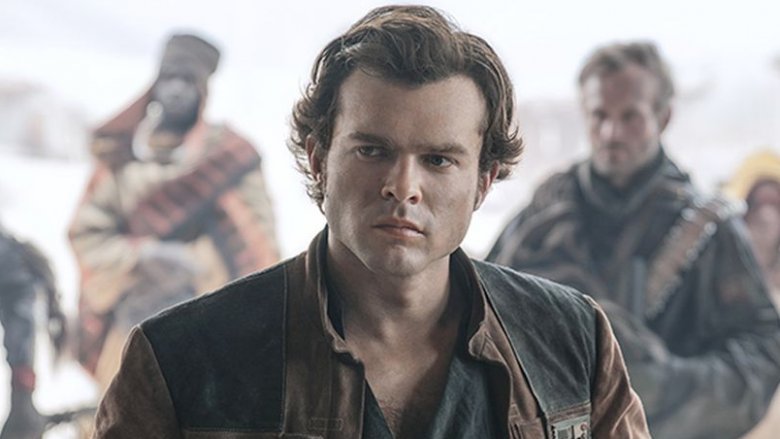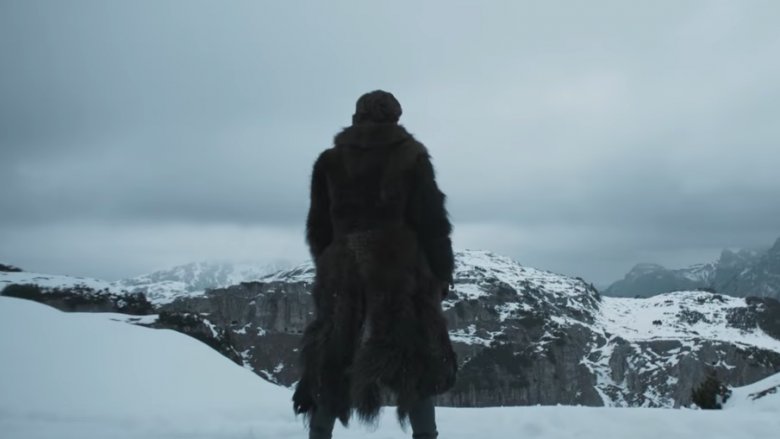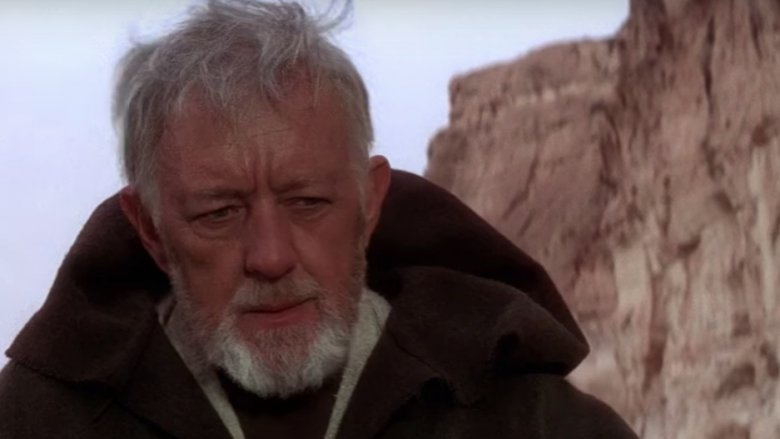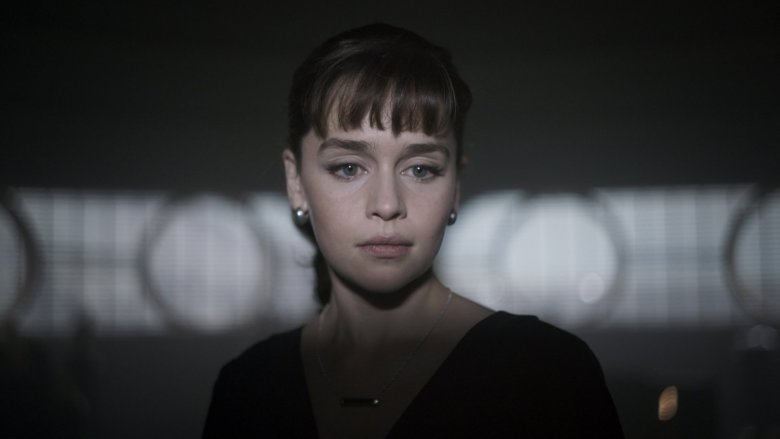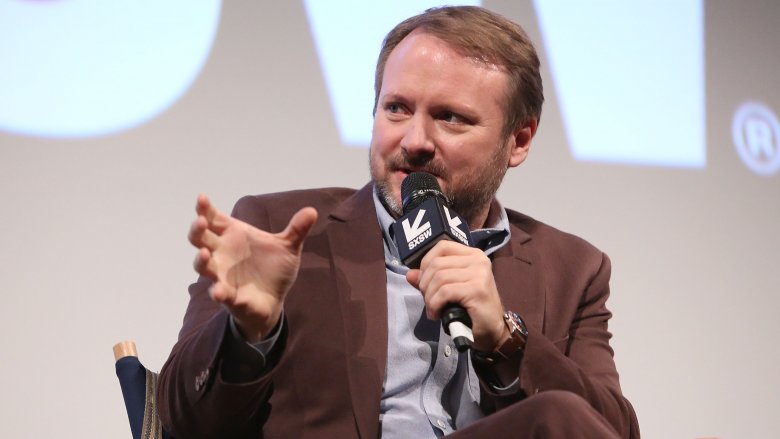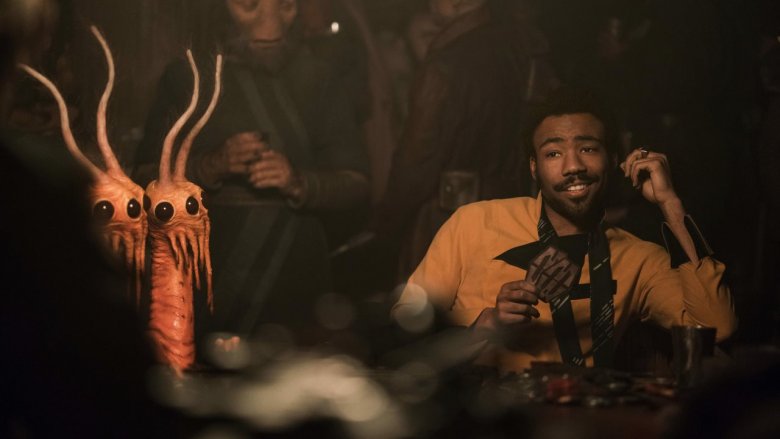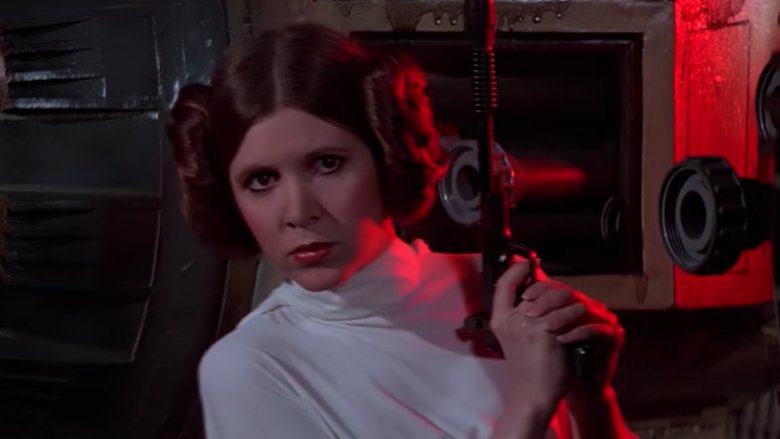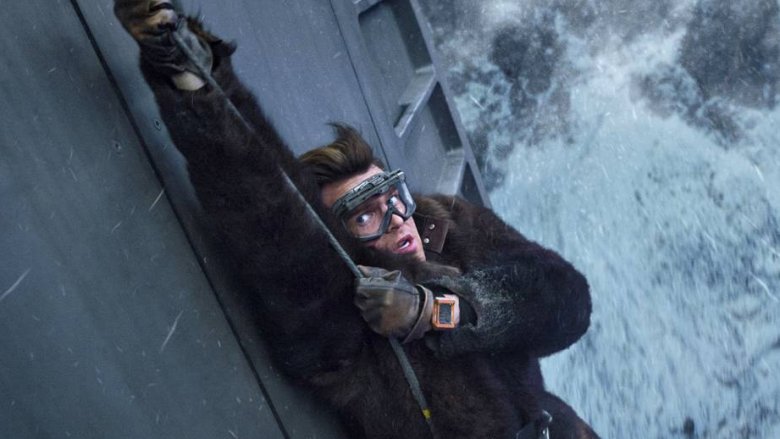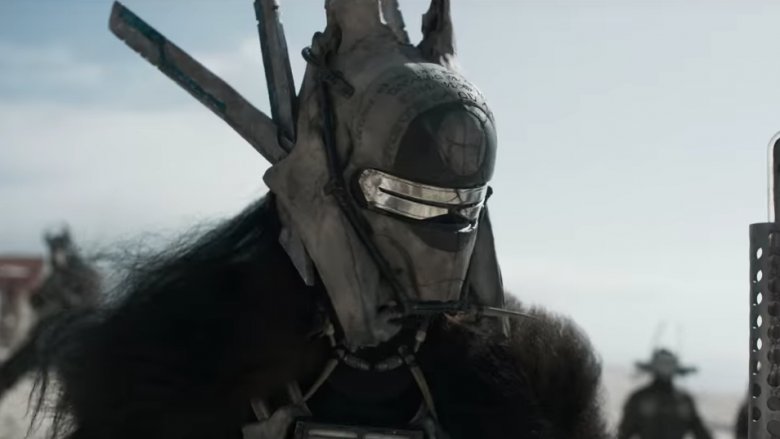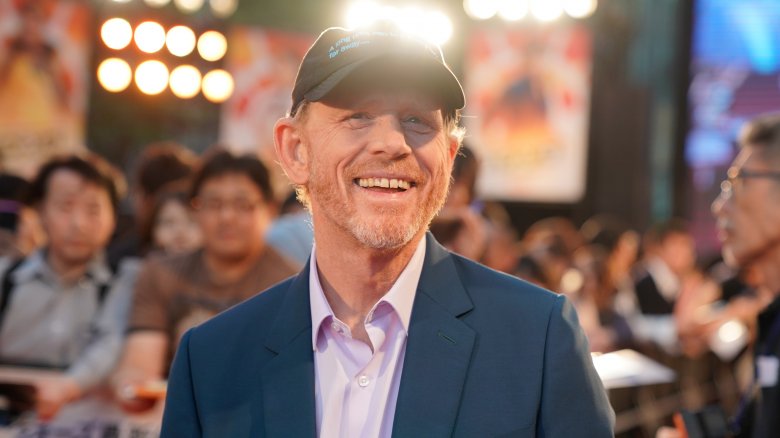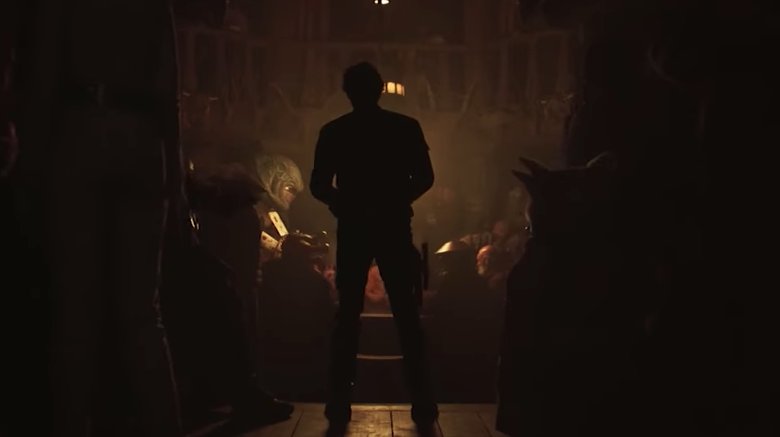What Solo's Failure Means For The Future Of Star Wars
It's unheard of for a Star Wars movie to debut with more of a whimper than a bang, yet Solo: A Star Wars Story has come and gone with shockingly little fanfare compared to other films in the franchise. It's certainly not a total disaster, but it's also a far cry from something like The Force Awakens in terms of box office intake. Plenty has been written about what went wrong with Han Solo's first spinoff, but in the aftermath of the film's theatrical run, it's hard not to wonder where the franchise goes from here. The future of Star Wars isn't in doubt by any means, but it definitely seems different after Solo. A number of adjustments will need to be made by executive producer Kathleen Kennedy and her crew on many fronts if the franchise is to continue its decades of incredible success, and with that in mind, here's a look at what Solo's failure means for Star Wars.
Once a year? Maybe not
Kids these days don't know how good they have it. Back in our day, we had to walk three miles through snow uphill both ways any time we wanted to watch a Star Wars movie, and we had to wait years between each one. Okay, so maybe the first half of that anecdote is a slight exaggeration, but the wait between films was very real. Not only were there about three years between each installment of the original and prequel trilogies, but once each trilogy wrapped up, fans were never certain there would be more Star Wars at all. It was a revelation when Disney revealed that after The Force Awakens, they planned to release at least one new Star Wars installment every year for the foreseeable future. Unfortunately, the new generation of Star Wars fans may have to learn to wait after all.
A new Star Wars film every year may not be the case after Solo. With plans for future non-trilogy films now in flux, Disney and Lucasfilm may have to question whether it's worth potentially diluting the brand with movies that exist just for the sake of filling a quota. Between this and the fact that the films planned for release after Episode IX seem oddly undefined, we may soon find ourselves waiting a bit longer than usual for our next Star Wars fix.
Obi-Wan and Boba Fett are frozen in carbonite
No further Star Wars Story anthology movies had been 100 percent publicly confirmed before Solo came out. Still, rumors claimed that the Star Wars films in development included one featuring Ewan McGregor's return as Obi-Wan Kenobi and a Boba Fett film directed by Logan's James Mangold, and it was widely believed that these would be the next installments in the Star Wars Story series. Now, rumors suggest that those films are off the table for the time being.
Solo's underperformance apparently has Disney and Lucasfilm skeptical as to how well future solo character films could perform, leaving Obi-Wan and Boba Fett's standalone stories allegedly on ice for the time being. It doesn't mean they'll never happen, but they're not looking nearly as imminent as they were before Solo's release. The same apparently goes for any anthology releases and solo films that may have been further off on the horizon, so anybody holding out hope for a Bossk spinoff might want to temper their expectations.
Back to square one
One of the reasons Solo may not have fully caught on is that Han Solo never needed an origin story to begin with — his arc in the original trilogy and The Force Awakens is perfect as it is. Besides, between superhero movies, the umpteenth attempt to make King Arthur happen, and even the Star Wars prequel trilogy, viewers are generally weary of origin stories these days. We don't always need to see a character's humble beginnings in order to fully appreciate who they are.
After Solo, the odds of future Star Wars films depicting even more origin stories seem much lower. There have been four prequels/origin films in the Star Wars franchise. Three of them make up the most reviled chapter in the franchise's history, and the fourth, adjusted for inflation, has the smallest box office intake of any film in the series. That could be enough to steer Lucasfilm and Disney away from looking back to established characters' beginnings for quite some time.
The new trilogies are still on
There are still a number of Star Wars films that have been publicly confirmed to be in development, including two new Star Wars trilogies — one from Last Jedi director Rian Johnson, and another from Game of Thrones showrunners David Benioff and D.B. Weiss. With Solo's failure, some future plans for the franchise are bound to be in flux. Others, however, are still very much on track.
The trilogies from Johnson and Benioff/Weiss are still in development, and remain unaffected by Solo's underperformance. There are rumors that Johnson's trilogy in particular will focus on a completely unexplored corner of the Star Wars galaxy; perhaps studio execs have faith that something fresh will increase the odds of a larger box office intake. It also probably helps that at least in Johnson's case, the films won't be covering old ground from earlier films in the franchise the way Solo did.
Timing is everything
Star Wars in the summer makes perfect sense. Heck, the original film was released in May of 1977, making it one of the great summer blockbusters of all time. However, Disney's release pattern over the last few years has seen Star Wars repurposed as a winter event, one usually arriving just a couple of weeks before Christmas. Solo bucked that trend, and it ended up working against the movie for a number of reasons.
Solo's troubled production, which required extensive reshoots, left Lucasfilm in favor of shifting its release to December from May. Disney insisted on not pushing it back. Even setting aside the rushed production, Solo came out a mere five months after the prior Star Wars installment, The Last Jedi. That's an incredibly quick turnaround for any franchise, not to mention that a May release means stiff competition — in this case, from box office juggernauts like Avengers: Infinity War and Deadpool 2. With Episode IX still slated for December of 2019, it may be safe to say Disney will stick to winter releases from here on out.
Time to move on
Perhaps the single greatest accomplishment of the first franchise anthology film, Rogue One: A Star Wars Story, is how well it replicates the aesthetic of the original Star Wars trilogy. It transports viewers back to a world that hasn't been revisited in cinema since Return of the Jedi. Similarly, while Solo doesn't take place in the exact same timespan as the first films in the series, it's in close enough proximity for its vibe and design to strongly resemble that of A New Hope and its sequels. That said, it's probably the last we're going to see of that era of Star Wars for a while.
Solo's box office performance seems to indicate that viewers are ready for some new ground. Between the original trilogy, Rogue One, and now Solo (plus Star Wars Rebels, the animated series covering the genesis of the Rebellion), there are already more than enough stories covering that era of the franchise. It seems unlikely that future Star Wars films will focus on the Empire years, as any gaps in time are quickly being filled in by these stories. Viewers are clearly ready to move on, and it's likely that the movies will follow suit.
No more playing it safe
Han Solo is the first Star Wars character from the original trilogy to get his own spinoff movie in the franchise. It makes sense, as Han Solo is one of the most popular Star Wars characters of all time. As fans, we can pick apart the numerous reasons that a Han Solo movie is a bad idea and fundamentally not as interesting as other choices; however, when you consider the character's longevity, the reasoning behind Solo: A Star Wars Story is actually pretty sound — it just can't be used again now that it's been proven unreliable.
Solo was, at least when it went into production, a seemingly safe bet. The problem is that Star Wars films need more than a great and recognizable character to get fans interested. In the wake of Solo's failure — and in the wake of The Last Jedi, a movie that is anything but safe and raked in crazy money at the box office — it's now clear that "safe" won't cut it in the future. There's an entire Star Wars universe to explore, and focusing on the same handful of characters and storylines only makes it feel smaller and less special.
The story may be over
In all the talk of Solo's underperformance, an important detail gets lost: the movie really isn't that bad. It's a lot of fun and, while ultimately unnecessary, tells an entertaining story about an unexplored corner of the Star Wars universe. It also ends with clear intentions of setting up more movies — Qi'ra climbs the ranks in the crime syndicate Crimson Dawn, Han wins the Falcon from Lando, and Crimson Dawn's leader is revealed to be none other than Darth Maul. It certainly seems like the filmmakers already know where they'd like to take the characters next.
Unfortunately, it's unlikely that they'll get the chance. With unrelated Star Wars films already reportedly off the table, it would be surprising if Disney and Lucasfilm commissioned a sequel. Solo sets up an interesting story about an exciting corner of the Star Wars universe — It's a shame we may never get to go back to it.
Bring in the pros
Clearly, a lot of factors played into Solo's box office failure, but none of them colored the public's perception of the project as much as its infamously troubled production. Several months into filming, directors Phil Lord and Chris Miller were abruptly fired and replaced with Ron Howard, who went on to reshoot most of the film and get it ready for its May release in less than a year. This isn't the first time a Star Wars Story has suffered backstage drama: Tony Gilroy had to come in to reshoot much of Rogue One after Gareth Edwards started it.
Twice, the studio has had to replace up and coming directors with more experienced talent, and it's hard to see it happening a third time. Considering how much Solo's on-set drama affected the buzz around the film, it may be a while before a younger director gets a shot at Star Wars. Lucasfilm is far more likely to hire seasoned pros who can be relied on to turn in something solid. It's a disappointingly safe future in some respects, but ultimately, it's probably a good thing. We can't say we'll miss seeing headlines containing the phrases Star Wars and "reshoots."
Star Wars isn't dead
In terms of box office intake, Solo isn't The Force Awakens, The Last Jedi, or even Rogue One. But it's crucial to note something else Solo isn't: an actual disaster. The film made its money back with profit to spare — it just hasn't made quite as much as Disney and Lucasfilm might have hoped.
It's easy to feel alarmed by Solo's underperformance. With rumors flying left and right regarding its box office run leading to plans changing and films being shelved, nobody could be blamed for worrying that the future of Star Wars is in jeopardy. That's far from the case. Plenty of people came out to see Solo, and those who did seem to have generally enjoyed it. Its underperformance simply means studio execs may need to rethink a few things in terms of where the franchise goes from here. As Yoda himself said, "The greatest teacher, failure is." There's every reason to believe the Lucasfilm braintrust is already learning its lessons from Solo — and there's still plenty of room for optimism for the future of Star Wars.
